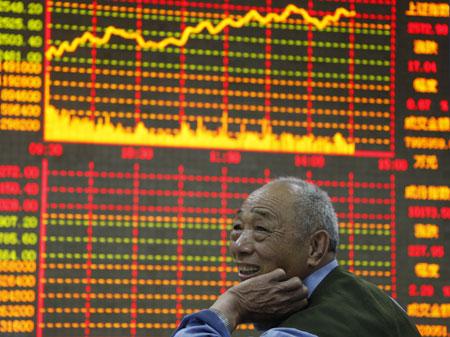
A stock investor looks baffled by recent stock market fluctuations. Securities experts say the fluctuations in A-share stocks, to a large extent, reflect investors' still lingering uncertainties about the outlook for the property market. Woo He / For China Daily
Effects of tightening credit not yet certain, say analysts and observers
BEIJING - Uncertainties about Beijing's property tightening cast a shadow on the recent gains in the A-share market as investors worried that the government may roll out more stringent measures if the current policies are not effective in cooling property market, analysts said.
Property stocks, the worst-performing sector this year, rebounded last week as the central government seemed to be slamming the brakes on its price tightening measures. But fluctuations in the sector indicated that uncertainties about the outlook of the property market still linger.
"If the developers maintain high prices, the government may implement even harsher measures that are likely to target real estate companies by controlling bank loans to them," said Wei Fengchun, an analyst at China Securities.
The property sector has declined more than 30 percent since April on concern the government crackdown on property speculation will hurt corporate earnings and slow down the overall economy. The Securities Times reported that Shanghai may soon begin trials of a property tax. It added details for collecting the tax will be discussed by the city government soon.
Although the valuations of China's property stocks are at an historic low level, Xia Junjie, a portfolio manager at Lion Fund, which oversees about $7.5 billion in assets, said the property sector was unlikely to rebound until the third quarter when measures to curb the record growth in prices take effect. "It's still too early to say that government measures have begun to work," said Xia. "The government will likely take time to evaluate the efficacy of its measures and not introduce additional controls in the meantime."
The benchmark Shanghai Composite Index has regained the 2,600-point territory after slumping nearly 20 percent from the November peak of 3,338.66 points last year.
Independent economist Andy Xie said China needed a property crash for stocks to return to a bull market because that would jolt investors into switching money to equities. But Zhang Qi, an analyst at Haitong securities, said the capital diverted from the depressed property sector was unlikely to be significant enough to trigger a bull run in the stock market.
Bloomberg contributed to the story





